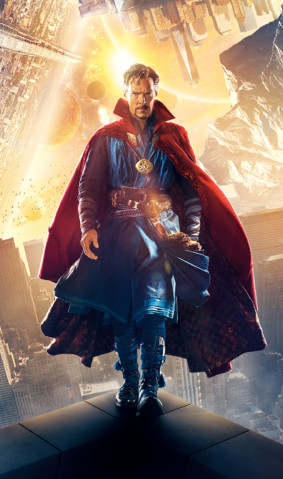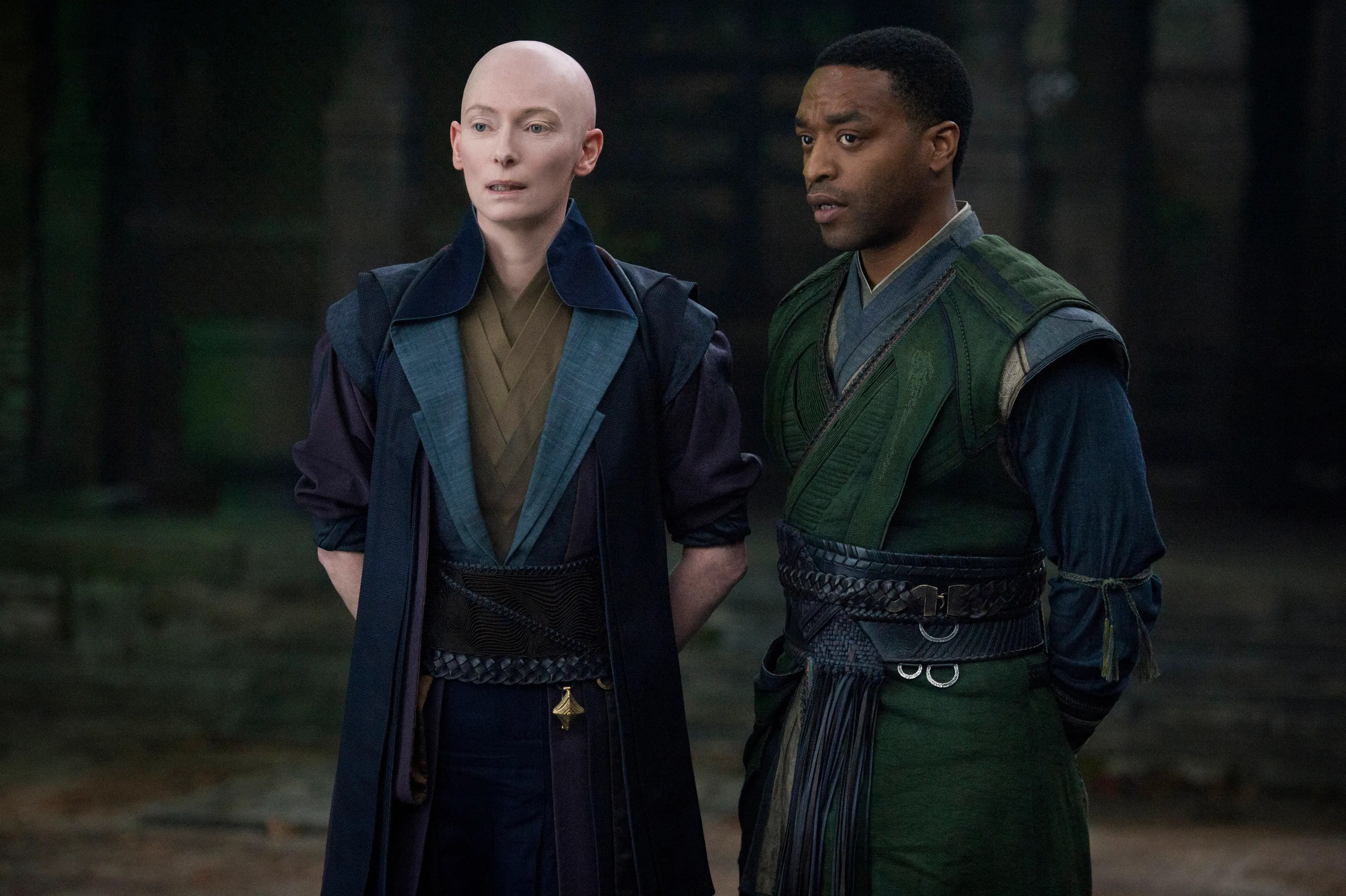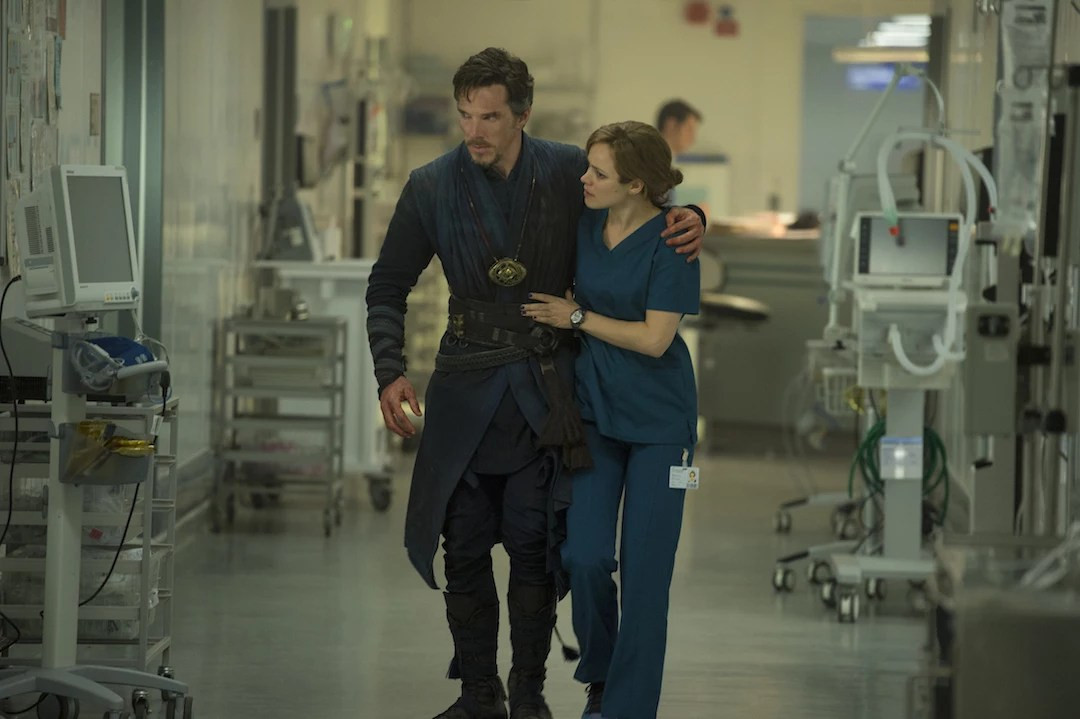Six months after the initial trailer for Doctor Strange dropped, and following co-writer C. Robert Cargill’s dismissive remarks towards Asian American critics, the first reviews emerged. While many critics seemed to enjoy the Doctor Strange movie itself, a more critical lens is needed to examine how these reviews addressed the significant issue of whitewashing, specifically the casting of Tilda Swinton as the Ancient One.
As a website dedicated to diverse voices in pop culture, we at thebootdoctor.net are less concerned with the film’s cinematic merits and more interested in dissecting the critical discourse surrounding it. The whitewashing of the Ancient One, a character traditionally depicted as Tibetan in Marvel comics, became a focal point for the #whitewashedOUT movement. Therefore, this isn’t a typical movie review, but a review of movie reviews. We’re evaluating how accurately and sensitively these publications portrayed Asian American concerns regarding the whitewashing controversy in Doctor Strange, using a straightforward grading system.
IGN: Doctor Strange Review
“Controversies around changing the Ancient One from the comics aside, Swinton’s ethereal, unique presence feels right at home here, playing this serene yet oh-so powerful character.”
IGN’s review casually dismisses the casting controversy as merely “changing the Ancient One from the comics.” This phrasing significantly downplays the issue. “Changing” implies a minor alteration, not a complete erasure of an Asian character and their replacement with a white actress. The term “whitewashing” accurately describes this problematic casting choice, and IGN’s avoidance of it is telling. It suggests a reluctance to engage with the racial implications of casting Tilda Swinton in a role originally conceived as an Asian man. Moreover, stating it’s easy to “put it aside” demonstrates a lack of empathy for the very real concerns raised by Asian American communities.
Grade: F
IndieWire: ‘Doctor Strange’ Review: Marvel’s Mind-Bending New Superhero Movie Is Their Best Since ‘The Avengers’
“Worst of all, ‘Doctor Strange’ more dramatically underlines Marvel’s gender bias than any previous film, if only because there’s a striking contrast between the trite dude superhero and the mesmerizing lady guru who passes her power onto him.”
IndieWire’s review, while attempting to engage in cultural commentary, completely misses the mark by focusing solely on gender bias. Critic David Ehrlich points out the gender dynamics, contrasting the “trite dude superhero” Doctor Strange with the “mesmerizing lady guru,” the Ancient One. While gender representation is important, framing it as the “worst of all” while entirely ignoring the whitewashing issue is a glaring omission. It effectively erases Asian Americans from a conversation that directly impacts their representation in media. This selective commentary prioritizes one aspect of diversity while sidestepping a significant racial issue, revealing a skewed perspective on representation in Doctor Strange.
Grade: F-
 Tilda Swinton as The Ancient One in Doctor Strange, a casting choice criticized for whitewashing an Asian character in the Marvel Cinematic Universe.
Tilda Swinton as The Ancient One in Doctor Strange, a casting choice criticized for whitewashing an Asian character in the Marvel Cinematic Universe.
Polygon: Doctor Strange review: The wizarding world of Marvel movies
“People seek out the magic of the Mystic Arts when they’re at their lowest low, searching for physical and emotional healing after all other hope has been lost. Strange, of course, only seeks answers from the East after he has exhausted everything that Western medicine has to offer. (There are no atheists in foxholes, eh?)”
Polygon’s review takes a detour into a problematic generalization about Eastern culture. The review suggests that Doctor Strange only turns to Eastern mysticism after Western medicine fails him, implying Eastern practices are a last resort, inferior to Western approaches. This reinforces a tired trope of the East as a source of mystical solutions only sought when Western methods are exhausted. It subtly perpetuates a hierarchy where Western knowledge is primary and Eastern wisdom is secondary, further marginalizing Eastern cultures within the context of Doctor Strange.
“Though Wong doesn’t have much to do in this film, his character is still a step up from the ethnically insulting ‘tea-serving manservant’ he is in the comics…”
While acknowledging the problematic portrayal of Wong in the comics is a step, Polygon’s review uses it as a deflection. It praises the film for making Wong “a step up” from a stereotypical depiction, yet fails to even mention the whitewashing of the Ancient One. This selective outrage is “ethnically insulting.” It suggests a willingness to address minor improvements in representation while completely ignoring a major instance of erasure. It’s as if acknowledging Wong’s slightly improved portrayal is enough to absolve the film of its more significant representational failures, particularly the whitewashing controversy surrounding the Ancient One in Doctor Strange.
Grade: ethnically, F
Variety: Film Review: ‘Doctor Strange’
“…much has already been written about the casting of the white-skinned Swinton in a role originally conceived as an old Asian man (as if the world needs yet another Mister Miyagi/Pai Mei stereotype), when the only real disappointment there is that the practically extraterrestrial star wasn’t asked to play the title role…”
Variety’s review attempts sarcasm that ultimately falls flat and reinforces harmful stereotypes. Critic Debruge ironically suggests that casting an Asian actor as the Ancient One would inevitably lead to a “Mister Miyagi/Pai Mei stereotype.” This statement is not only dismissive but also perpetuates the limited and stereotypical roles often offered to Asian actors in Hollywood. It implies that Asian characters can only exist as offensive caricatures, a deeply problematic assumption. Furthermore, suggesting the “only real disappointment” is not casting Swinton as Doctor Strange himself trivializes the legitimate concerns about whitewashing and Asian representation in Doctor Strange. It prioritizes a quirky casting idea over addressing a serious issue of racial erasure.
Grade: Wax on outta here with this
 Benedict Cumberbatch as Doctor Strange and Chiwetel Ejiofor as Mordo in Doctor Strange, showcasing the film's diverse cast but overshadowed by the whitewashing controversy.
Benedict Cumberbatch as Doctor Strange and Chiwetel Ejiofor as Mordo in Doctor Strange, showcasing the film's diverse cast but overshadowed by the whitewashing controversy.
USA Today: Review: ‘Doctor Strange’ casts marvelous mojo
“…Swinton adds sass, emotional depth and a little frailty to the wise-warrior archetype. Her performance will put to rest any remaining concerns about the character not being the Asian man of the comics.”
USA Today’s review takes the award for the most tone-deaf justification of whitewashing. It claims Swinton’s performance will “put to rest any remaining concerns” about the Ancient One not being Asian. This statement is not only presumptuous but also deeply insensitive. It suggests that a good performance by a white actress can somehow erase the problem of racial erasure. Comparing this to forgiving historical injustices based on a good performance, as the original article sarcastically implies with the Point Break and Japanese internment camps analogy, highlights the absurdity of this argument. A strong performance does not negate the issue of whitewashing in Doctor Strange.
Grade: 100% pure poop
The Hollywood Reporter: ‘Doctor Strange’: Film Review
“Looking like some kind of exquisite alien rather than a leftover Hare Krishna, [Swinton], too, has trippy phrases at her disposal…”
The Hollywood Reporter’s review engages in a bizarre and racially charged comparison. It praises Swinton’s appearance by contrasting it favorably against looking like a “leftover Hare Krishna.” This is a deeply insensitive and frankly racist comparison. Equating a religious group with something undesirable and contrasting it with an “exquisite alien” appearance is both dehumanizing and bizarrely othering. It reveals a disturbing racial bias in how the reviewer perceives and describes Swinton’s portrayal in Doctor Strange.
“Politically correct casting alarmists may stamp their feet about a white woman being cast as the supreme custodian of knowledge at a Himalayan retreat, which is, in fact, a thoroughly interracial establishment. But this is obviously nothing like Sam Jaffe playing the High Lama in 1937’s Lost Horizon…”
This review employs a series of dismissive tactics to downplay the whitewashing criticism. It labels critics as “politically correct casting alarmists,” infantilizing and belittling their concerns. It then attempts to justify the casting by vaguely claiming the Himalayan retreat is “thoroughly interracial,” a meaningless deflection. Finally, it resorts to “whataboutism,” comparing the whitewashing in Doctor Strange to the even more egregious example of Sam Jaffe in Lost Horizon. Minimizing a current issue by referencing a worse historical example does not negate the problem of whitewashing in Doctor Strange. It’s a condescending attempt to silence valid criticism.
Grade: Two stamps of my tiny feet
 Benedict Cumberbatch and Rachel McAdams in Doctor Strange, a Marvel movie that faced criticism for whitewashing despite its visual appeal.
Benedict Cumberbatch and Rachel McAdams in Doctor Strange, a Marvel movie that faced criticism for whitewashing despite its visual appeal.
ScreenCrush: ‘Doctor Strange’ Review: Marvel’s Familiar Formula With Some Really Cool Visuals
“In practice, [Swinton] delivers a very strong performance… On the other hand, it is a little disconcerting that a movie set almost entirely in Nepal, with characters dressed in Asian-inflected costumes, features so few Asian actors.”
ScreenCrush’s review offers a glimmer of awareness, but ultimately falls short. Critic Singer acknowledges the “disconcerting” lack of Asian actors in a film set in Nepal with Asian-inspired costumes. This observation is valid, but it’s relegated to a footnote, diminishing its importance. Furthermore, while mentioning the lack of Asian actors is a step in the right direction, it still avoids directly addressing the active replacement of an Asian character with a white actress. It highlights the symptom (lack of Asian actors) without naming the disease (whitewashing) in Doctor Strange.
Grade: C+
The Daily Beast: The Mind-Bending ‘Doctor Strange’ Is Marvel’s Trippiest Movie Yet
“…Doctor Strange, the latest comic book movie that ensures that the entitled white heroes of the Earth and beyond will keep inheriting the Marvel Cinematic Universe.”
“…[Doctor Strange] is yet another white male Chosen One destined to excel within an exotic culture not his own, an issue the film doesn’t bother trying to address. (It doesn’t sit quite as glaringly tone deaf, at least, as Marvel’s upcoming small-screen series Iron Fist whose white male protagonist inherits the MCU’s only other Asian-influenced mantle.)”
“Anyone looking for an answer to Doctor Strange’s streak of Orientalism won’t walk away satisfied…”
“Swinton is effortlessly excellent in her role — one that was gender-flipped, in a progressive move for strong female representation in the genre, at least…”
The Daily Beast, under the byline of Asian American critic Jen Yamato, provides a nuanced and comprehensive review that stands in stark contrast to the others. Yamato directly addresses the film’s “streak of Orientalism” and its contribution to the trope of the “white male Chosen One” excelling in “exotic cultures.” She connects Doctor Strange to broader patterns of representation within the Marvel Cinematic Universe and even references the upcoming Iron Fist series, highlighting a recurring issue. While acknowledging Swinton’s performance, Yamato doesn’t shy away from criticizing the problematic casting choice. The review astutely separates the artistic merits of Swinton’s acting from the political implications of whitewashing in Doctor Strange. This review is a model of responsible film criticism that engages with both the art and the surrounding cultural context.
Grade: A… ZN
Conclusion
The critical reception of Doctor Strange, when viewed through the lens of Asian American representation, reveals a troubling pattern. Many major publications either downplayed, ignored, or actively justified the whitewashing of the Ancient One. From casual dismissals to racially insensitive comparisons, the majority of these reviews failed to adequately address the valid concerns raised by Asian American communities. Only The Daily Beast, through the insightful perspective of Jen Yamato, provided a review that responsibly engaged with the complexities of representation in Doctor Strange. This analysis highlights the ongoing need for media criticism that is not only attuned to cinematic qualities but also critically examines issues of diversity, representation, and cultural sensitivity in Hollywood and the broader entertainment landscape.
